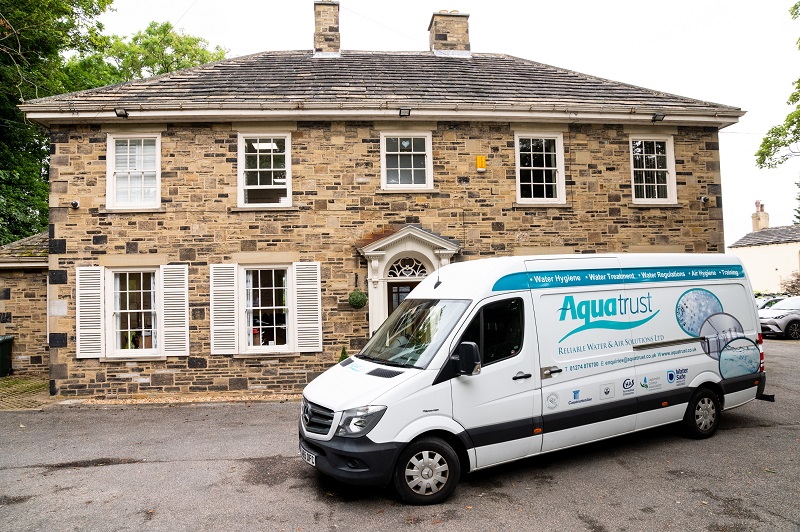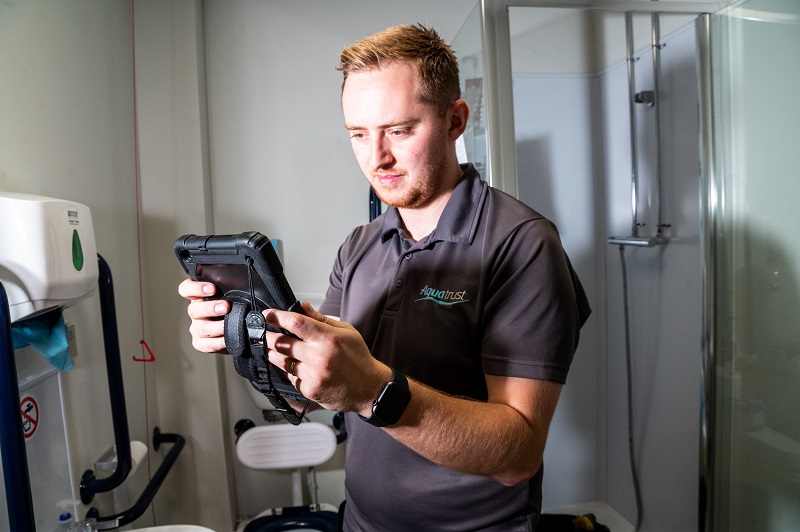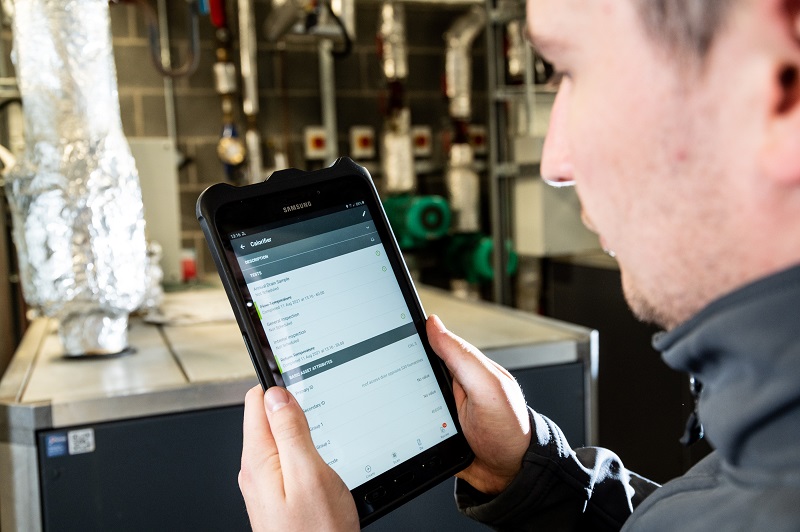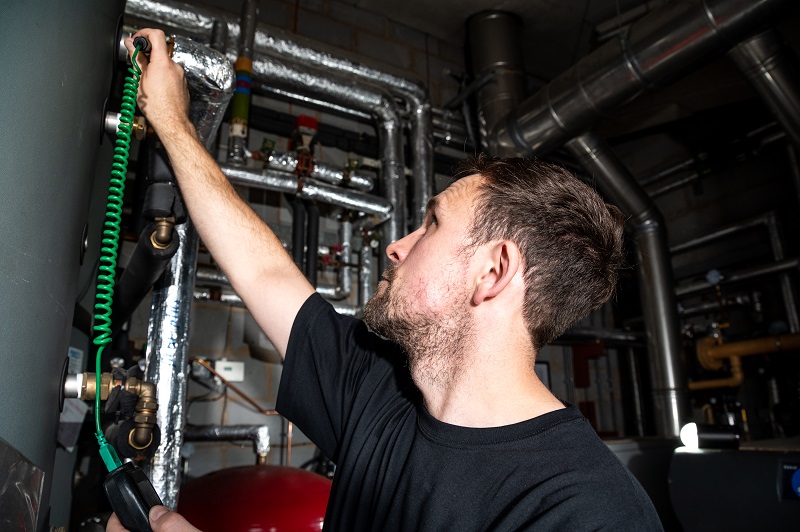In a closed system, the water used is completely enclosed within sealed pipes. That means it is continuously recirculated. Closed, or sealed, systems are typically low-maintenance and are perfect for heating and cooling systems where fresh water isn’t necessary.
While a closed system is a low-maintenance option compared to many other water systems, that doesn’t mean they can be ignored completely. Regular upkeep and preventative care are important for ensuring your closed water systems have a long lifespan.
That’s why at Aquatrust we offer a Closed System Analysis service, where we can help protect your closed systems with regular monitoring.
We caught up with Paul Kenny, our Sales Director, to find out a little more about the service and how it works.

How does Closed System Analysis work?
At Aquatrust, we can arrange a quarterly visit to a site with a closed system. Once on-site, we take samples from the closed systems, which include heating and chilled systems, and analyse the results. This enables us to provide further recommendations – either for ongoing water treatment or for remediation where we’ve deemed it necessary.
What are the benefits of Closed System Analysis?
Closed System Analysis allows us to keep on top of the water that’s contained within your heating or chilled systems. While closed systems are generally low maintenance, it’s important that we’re still able to analyse the quality of the water within them. The analysis is essential for prolonging the life of the water system and preventing it from corroding.
The added benefit of us performing closed system analysis is that we can ensure the system is performing well and doing its job (i.e., keeping your building warm or cool) by making sure the system itself is kept clean. Ensuring that our customer’s closed systems are clean and running as efficiently as possible is important to us at Aquatrust, particularly as the cost of energy continues to rise.

What problems are there in closed systems?
One of the main problems in a closed system is simply dirt. A closed system is just that, closed. As water within closed systems is used for things like heating a property as opposed to for drinking water, a constant supply of fresh water is not necessary. Instead, the water within the system is continuously reused.
Suspended solids within the water in a closed system can build up over time, leading to dirt or ‘sludge’ in the system that must be cleaned. At worst, a system can become corroded. This happens if the customer doesn’t regularly upkeep their closed system and can be a real problem, particularly in commercial buildings. We’ve seen corroded closed water systems in commercial buildings lead to repair and replacement costs that stretch into hundreds of thousands of pounds. Regular analysis and testing are the best way to prevent this from happening and ultimately save businesses a lot of unnecessary money.
Who needs a closed system analysis?
All commercial properties with a closed system like a heating or chilled system would benefit from us performing closed system analysis. When we perform the analysis, a dosing pot is an ideal place to start. The function of a dosing pot is to allow a water specialist company like Aquatrust to add chemical water treatment into a closed heating or cooling system. If you do not have a dosing pot, we’re also able to install one.

How common is Legionella in closed water systems? Is it a risk?
Some people worry about the presence of Legionella bacteria in their closed water systems. Legionella is a bacterium that can lead to a specific type of lung infection, or pneumonia, known as Legionnaires’ disease. Legionella is naturally found in freshwater environments but is commonly present in water systems in the right conditions – generally, in warm water where the bacteria can grow.
Legionnaires’ disease is contracted when people inhale small droplets of water or vapour containing the bacteria. Because of this, it is largely a concern in water systems that include spray, for example, showers. As the water in a closed system doesn’t come into contact with people, it is not necessarily an everyday risk. Even if Legionella were to be present in the water, it would not be a main concern of ours.
How does an online clean of a closed system work?
An online clean is a simple way to maintain your closed systems. At Aquatrust, we can install a non-intrusive sidestream filtration unit that allows us to clean the system over a period of six months, typically.
How often should closed systems be analysed?
This depends on your specific operations and systems. Generally, we’d recommend quarterly analysis, in line with the current guidance, as a good place to start.

We hope this taught you more about Closed System Analysis and how it works. If you’d like to know more about the process, please get in touch with the team for a friendly chat.

